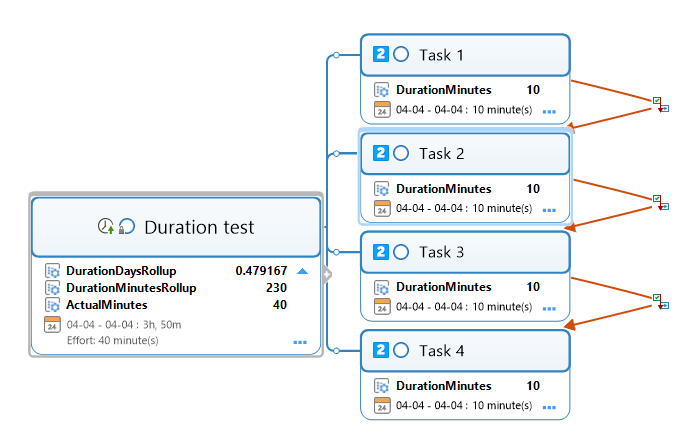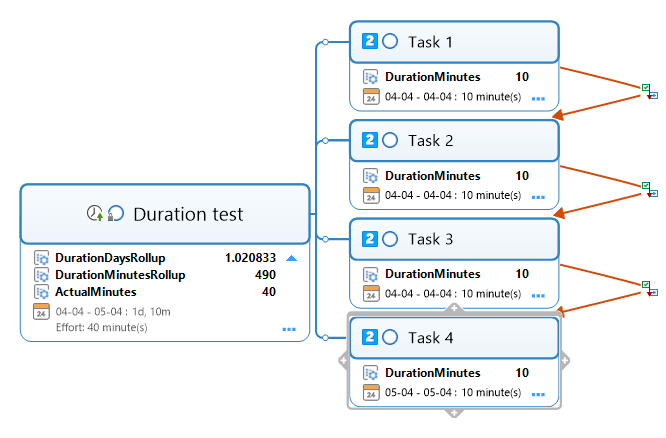Inaccuracies in rolling up task durations of less than a day
I have just noticed that you can get some strange results when rolling up task durations in minutes which are less than a work day.
If these tasks all fall on the same day the totals are wildly inaccurate - in one example, four 10-minute tasks were rounded up to 4 hours 10 minutes (see first example below). In addition, if there are some tasks on one day and others on the following day the first day in the rollup is counted as a whole day - to use the previous example, if one of the tasks is shifted to the next day the rollup becomes 1 day and 10 minutes (see second example below).
Incidentally, the effort if used provides an accurate total, and the addition or removal of relationships makes no difference.
The obvious workaround is to add a formula to the central topic to sum the subtask durations in minutes or hours, but this is a bit odd. I can understand the second issue - sort of - as this represents the overall project duration from start to finish, but it's still misleading and why the total duration should be inaccurate for tasks occurring on the same day I have no idea.





Hello Alex
The rolled-up duration is the time from the beginning of the first task to the end of the last, rather than the sum of the durations. For example, if the tasks are scheduled simultaneously then the rolled-up duration would be smaller than the sum. Are you sure you don't have slack time in the schedule? I can reproduce something similar by scheduling 1-hour tasks then reducing their duration to ten minutes. The overall duration does not reduce.
Hello Alex
The rolled-up duration is the time from the beginning of the first task to the end of the last, rather than the sum of the durations. For example, if the tasks are scheduled simultaneously then the rolled-up duration would be smaller than the sum. Are you sure you don't have slack time in the schedule? I can reproduce something similar by scheduling 1-hour tasks then reducing their duration to ten minutes. The overall duration does not reduce.
---